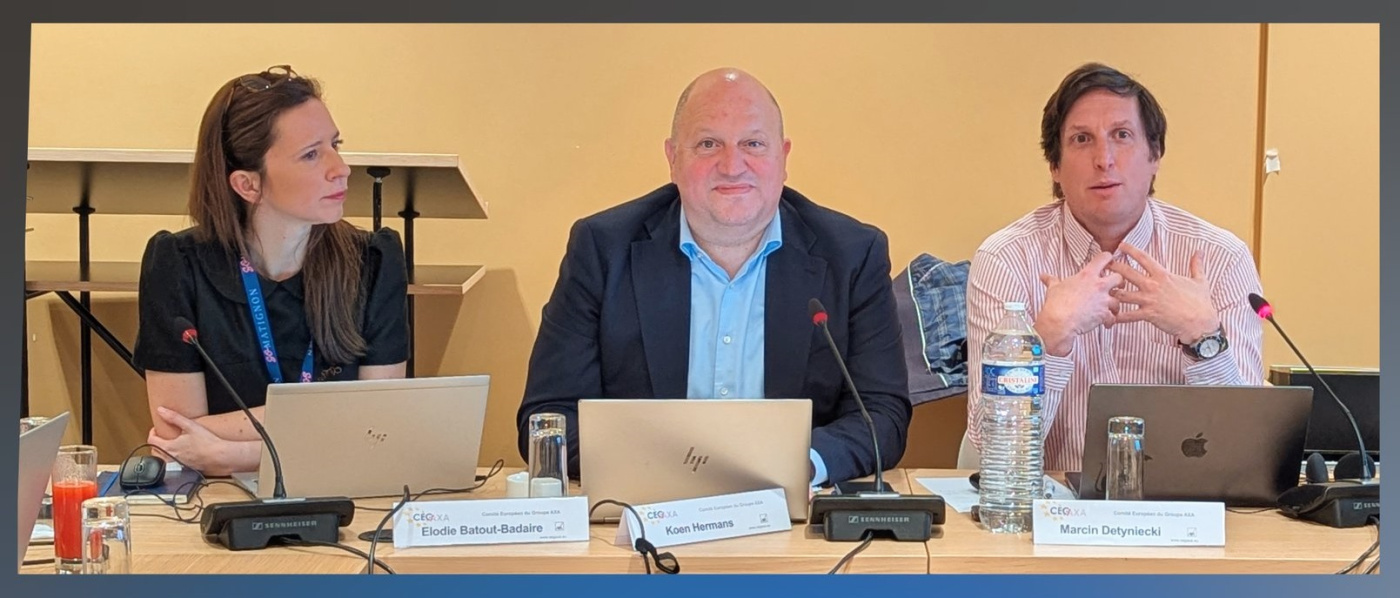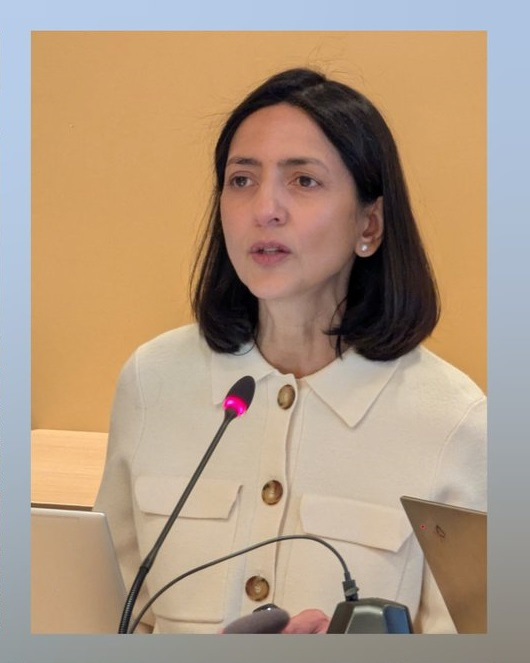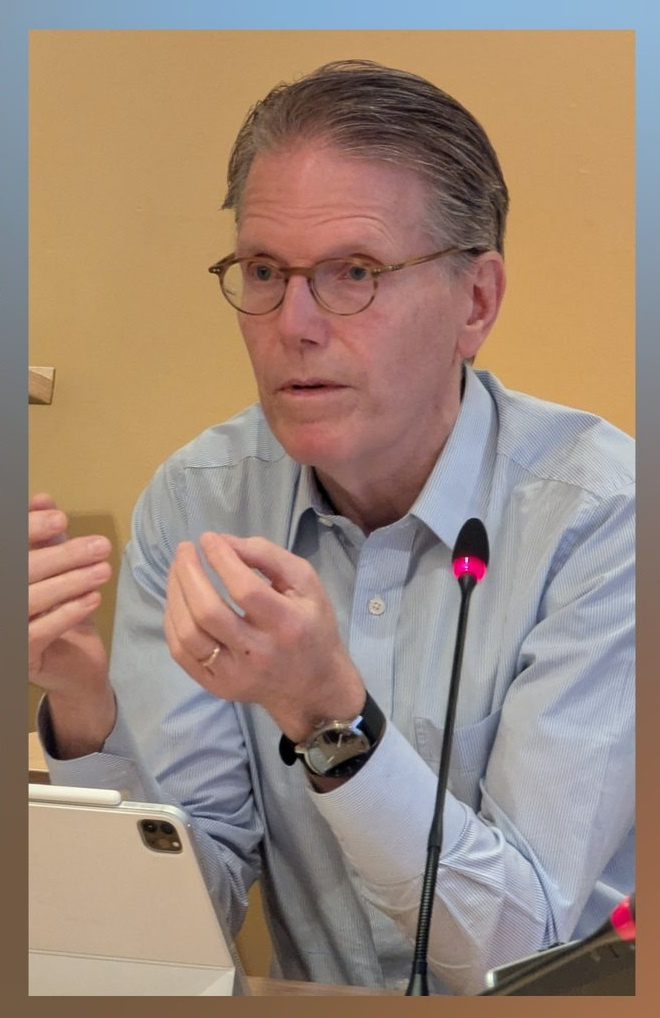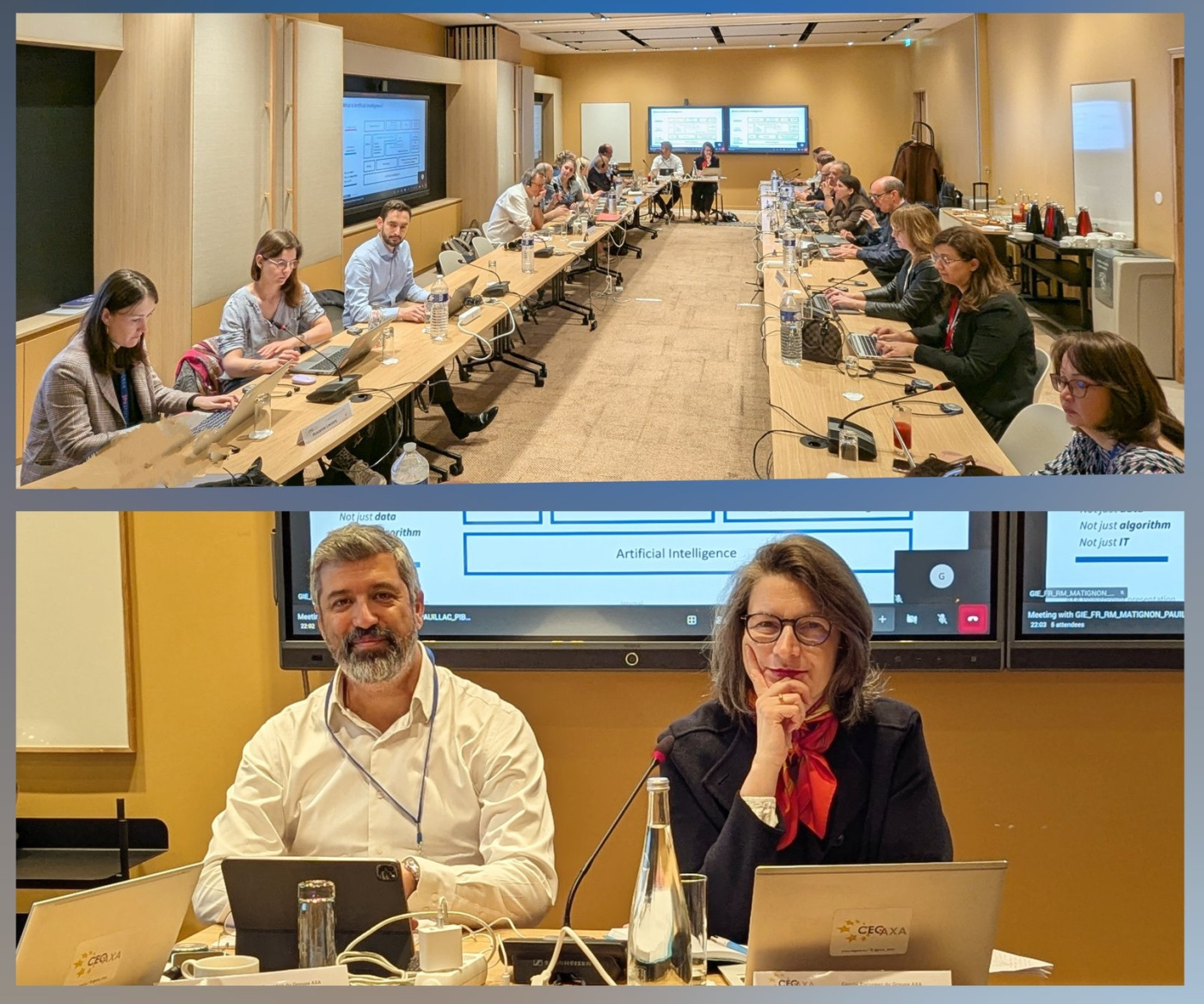April Bureau 2025
01.07.2025
Koen HERMANS opened the meeting by announcing a packed and forward-looking agenda.
The first item on the agenda was artificial intelligence, a key topic that is having a profound impact on AXA's business lines and development across Europe.
This information session explored the opportunities and challenges of AI, while promoting constructive dialogue on its ethical and responsible integration within the various entities. The participation of all members is essential to fully understand this technology and its use by the Group. Two annual sessions are therefore planned within the EWC, with the next one scheduled for October.
The second item, presented by Anu Venkataraman and George Stansfield, members of the Group's Executive Committee, provides an overview of the Group's current activities, with an analysis of the 2024 results and an update on the 2025 strategy in the ‘Unlock the Future’ plan.
Artificial Intelligence at AXA: First information sessions
Marcin Detyniecki explained that artificial intelligence is more complex than it appears and raises concerns about the ability of machines to perform human tasks. He addressed the legal challenges and fantasies associated with this technology.
Three concrete examples of AI applications at AXA were presented:
- Geospatial: a platform that identifies risks at all insured sites and enables continuous monitoring.
- Computable Contracts: a system that helps advisors ask the right questions by analysing codified contracts, thereby minimising errors.
- SecureGPT: a tool that enables a variety of tasks to be performed, such as translation or text correction, using more generic language models.
Marcin Detyniecki emphasises that machine learning is widely used in the insurance sector, particularly for claims forecasting, and that these technologies are part of AXA's ‘Unlock the Future’ strategy.
The 2024/2026 AI strategy has three main focuses:
- Transform: scaling up existing use cases.
- Boost: exploring new use cases with innovative data.
- Explore: technology watch to identify new risks.
An AI policy has been put in place to ensure that the use of this technology is secure and compliant with regulations. This policy covers the identification of prohibited use cases and includes a training programme for leaders, experts and all employees.
AXA is also interested in the environmental impact of AI. A study shows that the use of SecureGPT is expected to generate 42 tonnes of CO2 in 2024. In addition, a survey indicates that 68% of Microsoft Copilot users see a significant improvement in the quality of their work.
In conclusion, AI represents a step forward for AXA, which is already familiar with data analysis. Marcin emphasises the importance of education and learning in the use of AI, which accompanies human progress and helps AXA protect what is important.
Presentation of the AXA Group's 2024 results
Anu VENKATARAMAN highlights the strength of AXA's model, illustrated by a convincing return on equity.
The AXA Group's 2024 results reveal a strong performance, with 8% growth in sales and operating income, reaching the upper end of the target range of 6% to 8%.
AXA continues to demonstrate the benefits of its deep transformation. With a solvency ratio of 216%, the Group has a very high level of capitalisation. This transformation extends across several business lines and geographies, positioning AXA as the world's leading B2B property and casualty insurer. All segments, including property and casualty, life and savings, posted positive growth.
The Group's restructuring has enabled targeted investments, particularly in the United Kingdom, Italy and Spain, leading to a 7% increase in operating results. Despite an unstable external environment, AXA managed to deliver good results thanks to the commitment of all its employees. Anu VENKATARAMAN emphasised the importance of converting performance into cash, with the Group ending the year with €4 billion in cash, a key asset in times of economic uncertainty.
Koen HERMANS highlights extremely positive results for the coming year, emphasising AXA's ability to generate solid revenues and invest in sustainability, while offering attractive returns to investors.
Update on the AXA Group's strategy
George STANSFIELD discusses the current context of turbulent markets. AXA, with its long-term perspective, maintains a very high solvency ratio, thereby protecting its customers.
Under the leadership of Thomas BUBERL, AXA is focusing on high-potential activities while reducing its exposure to financial risks. Since 2016, the Group has sold 23 entities and is adopting a conservative approach to underwriting.
George STANSFIELD anticipates significant macroeconomic opportunities, particularly in the savings sector, while AXA is investing in prevention and protection services.
- The ‘Unlock the Future’ plan enables the Group to explore new markets, with a budget of €10 billion dedicated to mergers and acquisitions.
- Artificial intelligence has been identified as a key area for improving technical excellence and customer service. Inclusive insurance, considered profitable, is expected to generate €2 billion in premiums by 2026.
- In terms of climate change, AXA is committed to becoming a leader in sectors related to the energy transition. The Group also maintains a stable position in the personal insurance markets and plays a key role in the SME segment. Digitalisation, through the DCP platform, enables proactive risk management.
Finally, George STANSFIELD emphasises that 50% of AXA employees participate in volunteer activities, demonstrating the Group's commitment to social initiatives. AXA is thus positioning itself as a dynamic and responsible player, ready to meet current challenges while seizing future opportunities.
Work of the Secretariat : Focus on the prevention of incivilities and harassment.
Work on the prevention of incivility and harassment of employees by third parties is continuing in various countries. The process will be completed in May and will result in a summary that will be presented at the a future meeting.
You can find the notes of the Secretariat here:



